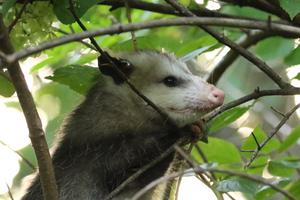Widespread Detection of COVID-19 Virus in Wildlife by Virginia Tech Scientists

Key Findings on COVID-19 in Wildlife
Virginia Tech scientists have discovered that the COVID-19 virus is widespread in wildlife, indicating an emerging risk for zoonotic transmission to humans. The research underscores the significance of wildlife health in managing public health concerns.
Implications of the Findings
- Increased surveillance of wildlife populations is essential.
- Understanding the virus transmission routes can aid in preventing future outbreaks.
- Collaboration between wildlife conservationists and health authorities is crucial.
This study strongly emphasizes the need to monitor the spread of viruses in wildlife, which may hold the key to averting future pandemics.
This article was prepared using information from open sources in accordance with the principles of Ethical Policy. The editorial team is not responsible for absolute accuracy, as it relies on data from the sources referenced.